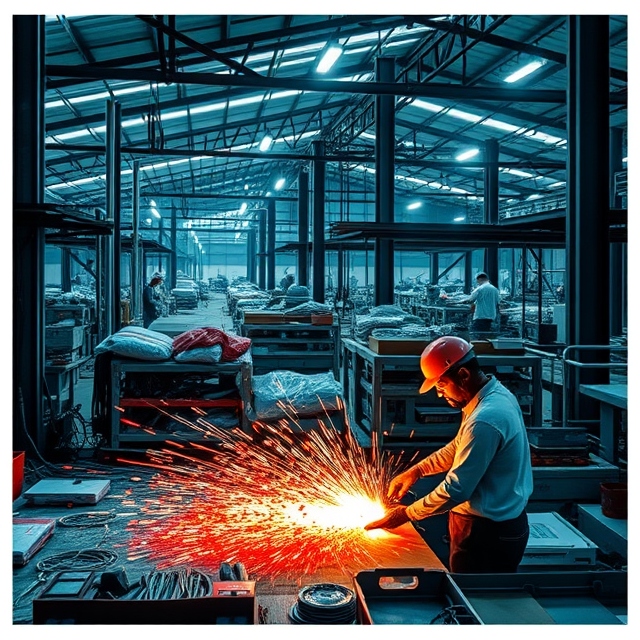"Ripple Effects: How the EU-China Tariff Dispute Reshapes Opportunities for Smaller Players in the Global Supply Chain"
Navigating the Flames: EU-China Tariff Dispute and Its Impact on German Automakers, SMEs, and China Agents
“If the flame fell on the cedars, what will the moss on the wall do?” This timeless proverb aptly captures the precarious position of Germany’s automotive industry and its supply chain amid the EU-China tariff dispute. A sector known for its precision engineering and global dominance now faces formidable challenges, with repercussions that extend to smaller players and intermediaries, such as China agents, who facilitate cross-border operations.
The Pressure on Global Giants
Germany’s automotive sector heavily depends on China for critical components like EV batteries and electronic modules. The newly imposed EU tariffs, ranging from 7.8% to 35.3%, target Chinese electric vehicles and parts to counter alleged unfair subsidies. However, this measure disrupts a sector already grappling with supply chain shortages, escalating production costs, and evolving consumer demands for sustainable mobility.
German automakers—the “cedars”—must adapt to these changes or risk losing their competitive edge in Europe. Their struggle could send ripples throughout their intricate web of suppliers, including small and medium-sized enterprises (SMEs) and China agents, who play crucial roles in connecting these manufacturers to Chinese suppliers.
What Does This Mean for Smaller Players and China Agents?
For SMEs, the challenges are immense. These “moss on the wall” entities, reliant on stable demand from Germany’s automotive giants, lack the capital, supply chain resilience, and global networks needed to weather such disruptions. Similarly, China agents, who act as intermediaries in securing components, facilitating transactions, and ensuring compliance with trade regulations, face an uncertain future.
If China retaliates by imposing counter-tariffs or restricting exports of essential components, SMEs and China agents will be disproportionately affected. SMEs often depend on China agents to manage the complexities of cross-border sourcing, and disruptions could halt production lines, inflate costs, and force some businesses into insolvency.
Consequences of a Trade War
Should the EU-China tensions escalate into a full-blown trade war, the ramifications could ripple through various industries, not just automotive. China agents, whose expertise lies in navigating this trade nexus, could see their roles diminished or transformed. SMEs and agents alike may struggle to adapt quickly, lacking the resources or leverage to pivot to new markets or supply sources.
China’s potential retaliatory measures, such as targeting European goods or imposing stricter regulations on foreign businesses, would further exacerbate the challenges, leaving SMEs and agents in an even tighter bind.
Strategies for SMEs and China Agents to Survive
To survive and thrive in this volatile landscape, SMEs and China agents must adapt proactively:
Diversify Suppliers and Markets:
SMEs and China agents should seek alternatives in emerging markets such as Vietnam, India, or Indonesia, reducing dependency on China while building new supplier networks.
Strengthen Local Partnerships:
Collaboration with local businesses or agents in alternative markets can open doors to shared production and resource capabilities.
Enhance Supply Chain Flexibility:
SMEs and China agents should embrace agile strategies, including dual-sourcing and inventory buffers, to mitigate sudden disruptions.
Bolster Financial Resilience:
Exploring financial assistance through government programs or private equity can provide a safety net during periods of uncertainty.
Leverage Expertise in Trade Compliance:
For China agents, staying updated on regulatory shifts and offering tailored guidance to clients can solidify their relevance and value.
Conclusion: Adapting to a New Trade Landscape
The EU-China tariff dispute underscores the fragility of global supply chains and the interconnected nature of international trade. While German automakers may possess the resources to endure these challenges, SMEs and China agents must adopt a forward-looking approach to safeguard their futures.
The proverb serves as a stark reminder of the cascading effects of trade conflicts. For smaller players and intermediaries like China agents, survival depends on adaptability, innovation, and strategic diversification. By embracing these principles, they can not only withstand the flames but also emerge stronger in a rapidly evolving global economy.

